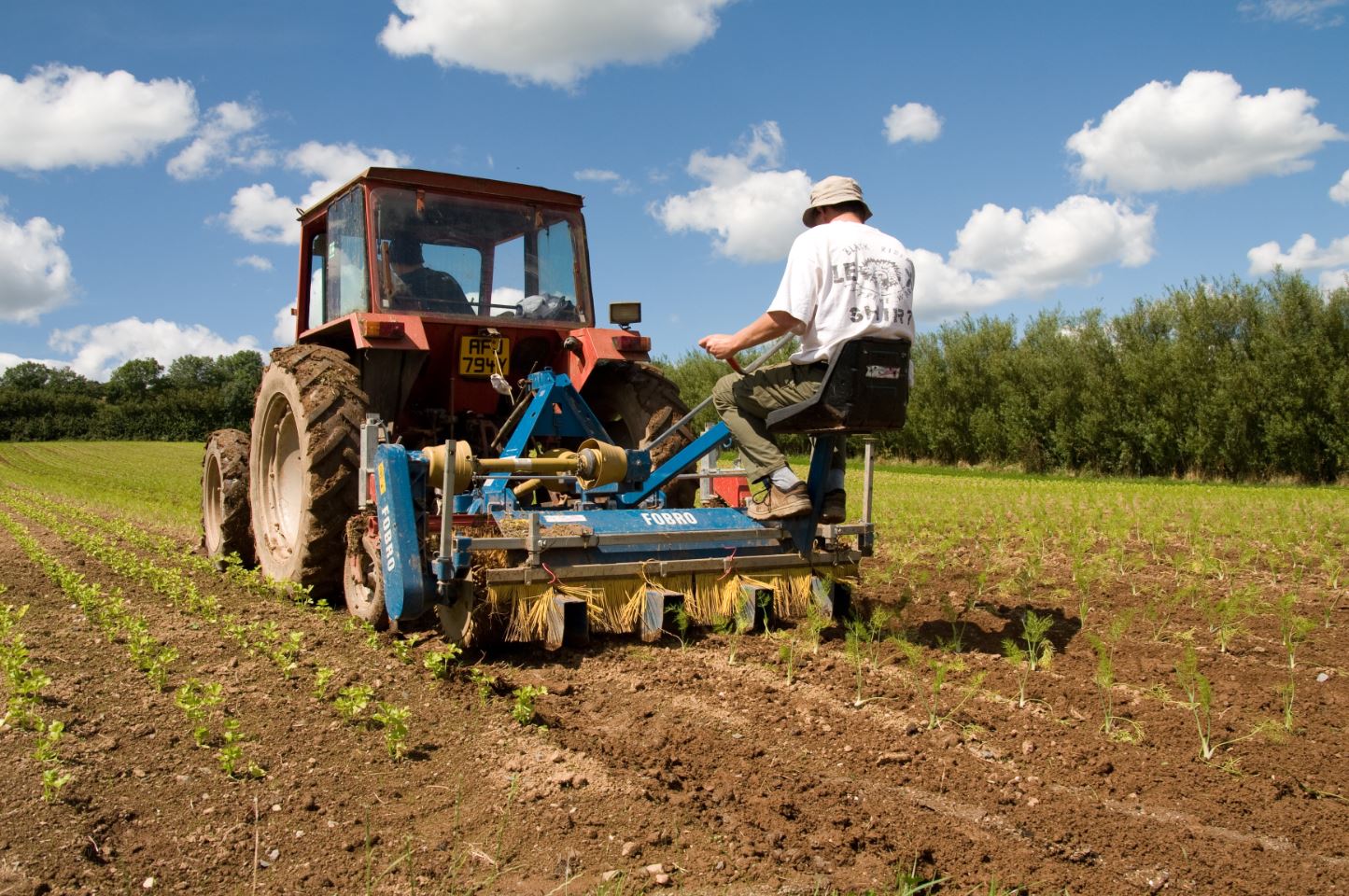Night temperatures are dropping, creating heavier dews, which take longer to dry under a lower sun. Good news for the cool and damp-loving young winter crops of leeks, cabbages and cauliflower; less good for the sun and heat-loving lettuces, squash, pumpkin and tomatoes, which are nearing the end. Ageing plants, less favourable conditions and rising humidity give fungal diseases the chance to spread, wringing the last life out of weakened summer crops.
Yesterday we were visited by a neighbour of our farm in the Vendée, France. Like most of the large-scale, commercial organic growers in the Loire Valley, production is highly mechanised; expensive and inflexible labour laws make growers terrified of the weeds, blemishes and crop variation which would render mechanical harvesting of baby salad leaves impossible.
The solution commonly adopted is to thermally sterilise the top 10cm of soil by injecting enough steam to heat it to 70 degrees, burning a staggering over 2,000 litres of diesel per hectare in the process. Everyone I speak to agrees that it is environmental insanity but, as far as I know, we are the only people to refuse to use it or to buy crops from sterilised soil.

By contrast, John, our Devon farm manager, is proud of our weeds and the ecological diversity they support; we have learnt to live with them. When watching my sterilising French neighbours mechanically harvesting a whole pallet of rocket in just ten minutes, I experience a combination of admiration and weariness; is this the inevitable future of my industry?
Is it pointless to resist commercial sanity, even when it contributes to the environmental insanity that denies our children a future? Will the ever-falling price of food at the farm gate (agriculture makes up just 0.7 per cent of GDP in the UK) render it impossible to farm any other way? There could be a richer, subtler, more complex and environmentally sensitive alternative – but sadly, the clumsy hegemony of free market dogma will never lead us there.
Meanwhile, the stark reality is that despite our appreciation of weeds, we have been unable to recruit the staff to deal with them. Our leeks are drowning in an unexpectedly vigorous sea of dock leaves, re-emerging from roots ploughed down with the grass that preceded the leeks in the field. The hand-harvested leeks may be a little smaller and bendier, and we will be little poorer, but no one will starve this winter.















So sad but not surprised at the moment especially to hear that labour shortages are going to reduce potential food yield. I have long wondered, is there any scope to offer ‘working holidays’ to interested volunteer customers. As a lifetime trade union member, I don’t want to take a paying job from anyone, but if people don’t want the work this does not apply. Granted that issues of skills and work capability/fitness would have to be overcome, I am sure the commitment and willingness of mostly retired/semi-retired folk like myself who can already identify most weeds could be harnessed. Have sleeping bag and work gloves, will travel! Let me at those docks [well next year anyway]!
Love your very proactive response to Guys newsletter Denby!
It is very sad to learn that in order to produce one hectare of rocket free of weeds that over 2,000 litres of diesel is burnt. Presumably, this soil sterilising isn’t restricted to rocket though. I understand completely the economics that has brought us to this point of self destruction where I assume a premium is charged for rocket as opposed to another less sexy crop,but also the desire by the general public for the perfect looking produce. I recall in the 70’s what little choice there was (haricot vert from Kenya was about as daring as it got and that was flown into the UK) compared to the overwhelming variety we see now in the supermarkets for a nation hooked on ready meals. Guy is spot on when he talks of the “clumsy hegemony of free market dogma” and now that the genie is out of the bottle it is hard to see how it could ever be put back. As people born in the 40’s,50’s and up to the mid 60’s pass on the link to a simpler (although not wholly pesticide free) and seasonal choice will be further lost. I recall reading some years ago about UK grown new potatoes being shipped to Italy to be washed and packaged then sent back to the UK to be sold in supermarkets. There are still many who remember what the UK had to give up by way of crop destruction to satisfy the then EEC agricultural policies that created wine lakes, butter mountains, barren fields for cash and oilve oil fiddles to name the tip of a huge wasteful iceberg that has gone some way to create the agricultural labour shortage..TV infotainment chefs might also stand accused along with the shallow economic policies our own government has encouraged in the name of advancement. Perhaps Brexit might be a way of re-balancing our food economy,but I can’t help but feel that if the tasteless strawberries, anaemic looking forced veg and 15 types of tomato aren’t on the shelves that a riot might ensue.
Denby, good idea. At 62 the spirit is willing but the knees and hips are having the final say.